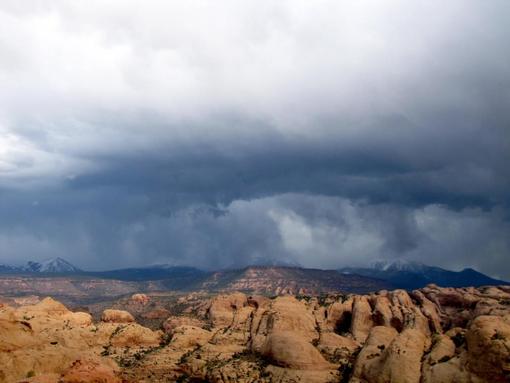State of Utah New Water Legislation Review
March 16, 2012
The Utah State Legislature recently concluded its 2012 session. Here's a brief and informal review of new legislation affecting water and irrigation.
This list of bills comes from the State Division of Water Quality.
First, a disclaimer: I'm not a lawyer, so there may be errors of interpretation below. Further, many laws, especially small changes to the code, are proposed to address a certain situation. Knowing that context means a great deal to understanding the actual impact of the law, as opposed to just the language. I don't know that specific context for any of the bills below; this is just a review of the language, so that people can get an idea of what was passed, and give a more careful review to anything that might be significant.
If you'd like to read them yourself, click here for the DWR list.
Water-related bills actually passed in 2012 (failed bills not reviewed here):
Chief Sponsor: Joel K. Briscoe
Added a few clauses to the law creating the duties and funding stream of the "Constitutional Defense Council," which was created to advance legal strategies promoting a states' rights agenda (reviewing federal government mandates for interference, Constitutionality, etc.). The new clauses authorize the Council to spend time/money on water disputes between Utah and other states, regardless of federal involvement.
Chief Sponsor: Christine F. Watkins
Allocates $2 million to a newly created Navajo Water Rights Negotiation Account.
Chief Sponsor: Joel K. Briscoe
Regarding water rights exchange applications. The bill has several changes that appear to be non-substantive language clarifications. It also adds a section that allows an applicant to reinstate a lapsed application for a right (an application is "lapsed by the State Engineer" if the conditions and uses in the app no longer exist) if the applicant has re-started the beneficial use of the water as described in the original app. However, the priority date of the water right will be the day the app is reinstated, not the day it was originally filed.
HB 453
Chief Sponsor: Ryan D. Wilcox
This adds a small section onto the laws about water rights change applications for federal reclamation projects. The addition specifies that both the water users' association overseeing the reclamation project and the owner of the right must sign the change application.
Chief Sponsor: John L. Valentine
This one has a bit of an interesting history. A bill was originally proposed that would limit Water Conservancy District property tax levies to certain percentages, particularly when paying off bonds. That bill was then scratched, and replaced with the much more vague bill that passed, which instead "Directs the Revenue and Taxation Interim Committee in 2012 to study the proper allocation of water costs to the rate structure charged for water customers."There's supposed to be analysis of things like conservation rate structures, landscaping ordinances to conserve water, the impact of impact fees on development, alternative ways to finance water delivery projects, etc. One particular item of interest is "study the efficacy of or need for various programs, including variable rate processing, education programs, landscape ordinances, and multi-tier rate structures," which is very important stuff.
Chief Sponsor: Ralph Okerlund
This bill make some seemingly minor changes to the Commercial Code regarding the procedures for replacing lost, damaged or stolen certificates in a land or water company, clarifies that the provisions in that part of the Code apply to both, and defines them by the geographic area they serve.
I'll put out a description of unpassed bills if I have time later, since those bills often get resurrected in the next section, or practically enacted in other ways.
Talk about this article...
